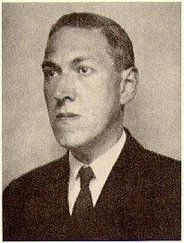H. P. Lovecraft - The Complete Fiction of H. P. Lovecraft
Здесь есть возможность читать онлайн «H. P. Lovecraft - The Complete Fiction of H. P. Lovecraft» — ознакомительный отрывок электронной книги совершенно бесплатно, а после прочтения отрывка купить полную версию. В некоторых случаях можно слушать аудио, скачать через торрент в формате fb2 и присутствует краткое содержание. Жанр: unrecognised, на немецком языке. Описание произведения, (предисловие) а так же отзывы посетителей доступны на портале библиотеки ЛибКат.
- Название:The Complete Fiction of H. P. Lovecraft
- Автор:
- Жанр:
- Год:неизвестен
- ISBN:нет данных
- Рейтинг книги:3 / 5. Голосов: 1
-
Избранное:Добавить в избранное
- Отзывы:
-
Ваша оценка:
- 60
- 1
- 2
- 3
- 4
- 5
The Complete Fiction of H. P. Lovecraft: краткое содержание, описание и аннотация
Предлагаем к чтению аннотацию, описание, краткое содержание или предисловие (зависит от того, что написал сам автор книги «The Complete Fiction of H. P. Lovecraft»). Если вы не нашли необходимую информацию о книге — напишите в комментариях, мы постараемся отыскать её.
Lovecraft was virtually unknown during his lifetime and published only in pulp magazines before he died in poverty, but is now regarded as one of the most significant 20th-century authors of weird and horror fiction.
The Complete Fiction of H. P. Lovecraft — читать онлайн ознакомительный отрывок
Ниже представлен текст книги, разбитый по страницам. Система сохранения места последней прочитанной страницы, позволяет с удобством читать онлайн бесплатно книгу «The Complete Fiction of H. P. Lovecraft», без необходимости каждый раз заново искать на чём Вы остановились. Поставьте закладку, и сможете в любой момент перейти на страницу, на которой закончили чтение.
Интервал:
Закладка:
In 1760 Joseph Curwen was virtually an outcast, suspected of vague horrors and daemoniac alliances which seemed all the more menacing because they could not be named, understood, or even proved to exist.The last straw may have come from the affair of the missing soldiers in 1758, for in March and April of that year two Royal regiments on their way to New France were quartered in Providence, and depleted by an inexplicable process far beyond the average rate of desertion.Rumour dwelt on the frequency with which Curwen was wont to be seen talking with the red-coated strangers; and as several of them began to be missed, people thought of the odd conditions among his own seamen.What would have happened if the regiments had not been ordered on, no one can tell.
Meanwhile the merchant’s worldly affairs were prospering.He had a virtual monopoly of the town’s trade in saltpetre, black pepper, and cinnamon, and easily led any other one shipping establishment save the Browns in his importation of brassware, indigo, cotton, woollens, salt, rigging, iron, paper, and English goods of every kind.Such shopkeepers as James Green, at the Sign of the Elephant in Cheapside, the Russells, at the Sign of the Golden Eagle across the Bridge, or Clark and Nightingale at the Frying-Pan and Fish near the New Coffee-House, depended almost wholly upon him for their stock; and his arrangements with the local distillers, the Narragansett dairymen and horse-breeders, and the Newport candle-makers, made him one of the prime exporters of the Colony.
Ostracised though he was, he did not lack for civic spirit of a sort.When the Colony House burned down, he subscribed handsomely to the lotteries by which the new brick one—still standing at the head of its parade in the old main street—was built in 1761.In that same year, too, he helped rebuild the Great Bridge after the October gale.He replaced many of the books of the public library consumed in the Colony House fire, and bought heavily in the lottery that gave the muddy Market Parade and deep-rutted Town Street their pavement of great round stones with a brick footwalk or “causey” in the middle.About this time, also, he built the plain but excellent new house whose doorway is still such a triumph of carving.When the Whitefield adherents broke off from Dr.Cotton’s hill church in 1743 and founded Deacon Snow’s church across the Bridge, Curwen had gone with them; though his zeal and attendance soon abated.Now, however, he cultivated piety once more; as if to dispel the shadow which had thrown him into isolation and would soon begin to wreck his business fortunes if not sharply checked.
2.
The sight of this strange, pallid man, hardly middle-aged in aspect yet certainly not less than a full century old, seeking at last to emerge from a cloud of fright and detestation too vague to pin down or analyse, was at once a pathetic, a dramatic, and a contemptible thing.Such is the power of wealth and of surface gestures, however, that there came indeed a slight abatement in the visible aversion displayed toward him; especially after the rapid disappearances of his sailors abruptly ceased.He must likewise have begun to practice an extreme care and secrecy in his graveyard expeditions, for he was never again caught at such wanderings; whilst the rumours of uncanny sounds and manoeuvres at his Pawtuxet farm diminished in proportion.His rate of food consumption and cattle replacement remained abnormally high; but not until modern times, when Charles Ward examined a set of his accounts and invoices in the Shepley Library, did it occur to any person—save one embittered youth, perhaps—to make dark comparisons between the large number of Guinea blacks he imported until 1766, and the disturbingly small number for whom he could produce bona fide bills of sale either to slave-dealers at the Great Bridge or to the planters of the Narragansett Country.Certainly, the cunning and ingenuity of this abhorred character were uncannily profound, once the necessity for their exercise had become impressed upon him.
But of course the effect of all this belated mending was necessarily slight.Curwen continued to be avoided and distrusted, as indeed the one fact of his continued air of youth at a great age would have been enough to warrant; and he could see that in the end his fortunes would be likely to suffer.His elaborate studies and experiments, whatever they may have been, apparently required a heavy income for their maintenance; and since a change of environment would deprive him of the trading advantages he had gained, it would not have profited him to begin anew in a different region just then.Judgment demanded that he patch up his relations with the townsfolk of Providence, so that his presence might no longer be a signal for hushed conversation, transparent excuses of errands elsewhere, and a general atmosphere of constraint and uneasiness.His clerks, being now reduced to the shiftless and impecunious residue whom no one else would employ, were giving him much worry; and he held to his sea-captains and mates only by shrewdness in gaining some kind of ascendancy over them—a mortgage, a promissory note, or a bit of information very pertinent to their welfare.In many cases, diarists have recorded with some awe, Curwen shewed almost the power of a wizard in unearthing family secrets for questionable use.During the final five years of his life it seemed as though only direct talks with the long-dead could possibly have furnished some of the data which he had so glibly at his tongue’s end.
About this time the crafty scholar hit upon a last desperate expedient to regain his footing in the community.Hitherto a complete hermit, he now determined to contract an advantageous marriage; securing as a bride some lady whose unquestioned position would make all ostracism of his home impossible.It may be that he also had deeper reasons for wishing an alliance; reasons so far outside the known cosmic sphere that only papers found a century and a half after his death caused anyone to suspect them; but of this nothing certain can ever be learned.Naturally he was aware of the horror and indignation with which any ordinary courtship of his would be received, hence he looked about for some likely candidate upon whose parents he might exert a suitable pressure.Such candidates, he found, were not at all easy to discover; since he had very particular requirements in the way of beauty, accomplishments, and social security.At length his survey narrowed down to the household of one of his best and oldest ship-captains, a widower of high birth and unblemished standing named Dutee Tillinghast, whose only daughter Eliza seemed dowered with every conceivable advantage save prospects as an heiress.Capt.Tillinghast was completely under the domination of Curwen; and consented, after a terrible interview in his cupolaed house on Power’s Lane hill, to sanction the blasphemous alliance.
Eliza Tillinghast was at that time eighteen years of age, and had been reared as gently as the reduced circumstances of her father permitted.She had attended Stephen Jackson’s school opposite the Court-House Parade; and had been diligently instructed by her mother, before the latter’s death of smallpox in 1757, in all the arts and refinements of domestic life.A sampler of hers, worked in 1753 at the age of nine, may still be found in the rooms of the Rhode Island Historical Society.After her mother’s death she had kept the house, aided only by one old black woman.Her arguments with her father concerning the proposed Curwen marriage must have been painful indeed; but of these we have no record.Certain it is that her engagement to young Ezra Weeden, second mate of the Crawford packet Enterprise, was dutifully broken off, and that her union with Joseph Curwen took place on the seventh of March, 1763, in the Baptist church, in the presence of one of the most distinguished assemblages which the town could boast; the ceremony being performed by the younger Samuel Winsor.The Gazette mentioned the event very briefly, and in most surviving copies the item in question seems to be cut or torn out.Ward found a single intact copy after much search in the archives of a private collector of note, observing with amusement the meaningless urbanity of the language:
Читать дальшеИнтервал:
Закладка:
Похожие книги на «The Complete Fiction of H. P. Lovecraft»
Представляем Вашему вниманию похожие книги на «The Complete Fiction of H. P. Lovecraft» списком для выбора. Мы отобрали схожую по названию и смыслу литературу в надежде предоставить читателям больше вариантов отыскать новые, интересные, ещё непрочитанные произведения.
Обсуждение, отзывы о книге «The Complete Fiction of H. P. Lovecraft» и просто собственные мнения читателей. Оставьте ваши комментарии, напишите, что Вы думаете о произведении, его смысле или главных героях. Укажите что конкретно понравилось, а что нет, и почему Вы так считаете.










